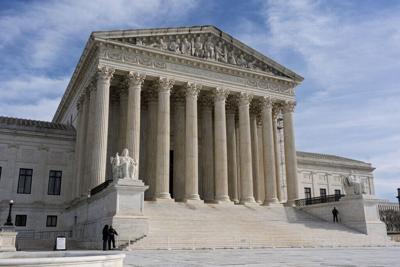WASHINGTON — The U.S. Supreme Court wants to know if, by creating a second Black majority congressional district, Louisiana violated the U.S. Constitution.
The nine justices focused on mechanics when they first heard the case — called Louisiana v. Callais — in March. They’re now asking an ideological question some critics say might lead to further weakening of the Voting Rights Act of 1965, one of the legislative cornerstones of the Civil Rights era.
“Obviously, the court is divided,” said U.S. Rep. Cleo Fields, the Baton Rouge Democrat who won the newly created seat in the U.S. House. “I don’t think either side has five votes. I think they’re trying to see how they get there.”
The high court announced in June that it would hear more arguments. On Aug. 1, it asked lawyers to argue whether Louisiana’s second minority-majority district violates either the 14th Amendment, which forbids districts based on race, or the 15th Amendment, which forbids abridging the right to vote because of race.
The Voting Rights Act’s Section 2 requires minority-majority districts if the population lives close enough together, shares similar political goals, and is in a state, like Louisiana, where White majority districts have never elected a Black candidate.
State Attorney General Liz Murrill had asked the justices to sort out how a state could draw district maps without running afoul of the often-conflicting laws. She said Wednesday she won’t comment until the state files its new brief before the high court.
John Bisognano, president of the National Redistricting Foundation, a Washington-based nonprofit affiliated with the Democratic Party, noted the high court had never found a conflict between the Equal Protection Clause and the Voting Rights Act.
“If the Court decides to now undo that precedent, it would be a head-spinning reversal of itself,” Bisognano said in a statement.
Though Black residents make up a third of the state’s population, the Republican-majority Louisiana Legislature in 2022 approved congressional maps after the last U.S. Census count that assured the elections of five White Republicans and one Black Democrat.
A cadre of Black voters sued, and a federal district court in Baton Rouge ruled a second minority-majority district was needed to comply with the Voting Rights Act.
The newly elected Republican-supermajority Legislature in January 2024 created two districts in which a Black candidate had a chance of winning.
Initially, Black voters recommended the second minority-majority district center in depopulating north Louisiana. But lawmakers didn’t want to undermine House Speaker Mike Johnson, R-Benton, or Rep. Julia Letlow, R-Baton Rouge, and chose instead to remap the 6th Congressional District.
The result links predominantly Black precincts from Baton Rouge to Lafayette to Shreveport. Though stretched thinly across the state, the district is smaller than Letlow’s and takes less time to traverse than Johnson’s.
Louisiana argued that politics played an important role in how the district came out.
The Callais group of self-described “non-African Americans” filed a legal challenge in Monroe, arguing legislators improperly decided first to draw a Black-majority district and then chose which White Republican to sacrifice.
Two of the three judges agreed with the Callais side, but the Supreme Court ruled it was too late to sort out the competing lower court decisions and the 2024 elections proceeded using the legislative map with two districts that favored Black candidates.
“The issue the high court seems to want to tackle further is whether applying Section 2 continues to be Constitutional, at least as applied to Louisiana,” said Michael Li, a redistricting expert with the Brennan Center for Justice in New York.
The Voting Rights Act automatically sunsets when a state no longer engages in discriminatory election practices. Justice Brett Kavanaugh wrote in a case about college enrollments: “The Court has long said that race-based remedial action must have a logical end point.”
Louisiana no longer requires Black voters to pass onerous tests in order to register and Black voters are no longer violently intimidated not to vote. But legislators initially drew a map that diluted minority voter strength. How does that count?
“It’s not 1965 anymore, but the idea that Louisiana has moved beyond racism in its election laws, in its election maps … seems to defy even a cursory understanding,” Li said. “If Section 2 doesn’t apply in Louisiana, it’s hard to think of many places in the country where it might.”



